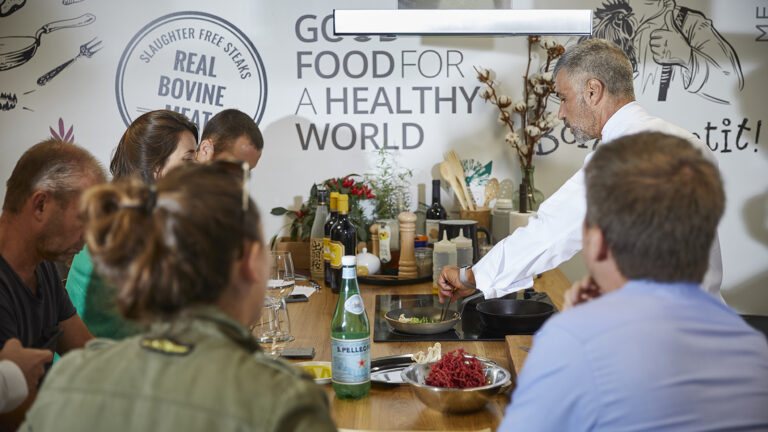Israeli scientists may have just come up with the ultimate falafel. Yissum, the Research and Development Company of the Hebrew University of Jerusalem, is introducing new chickpea varieties — which retain high nutritional values and exhibit improved synchronization between flowering and the rainy season to increase yield.
Ranking second among the world’s food legumes and found in many vegetarian dishes, the chickpea is a popular and sought after protein source. It contains Lutein — an important antioxidant whose intake is associated with lower risk of blindness.
The majority of the crop is cultivated in India. In Israel, chickpeas are used in falafel, hummus, and even ice cream.
The new chickpea varieties were developed by Professor Shahal Abbo, of the Robert H. Smith Faculty of Agriculture, Food and Environment at HU. He used non-GMO breeding technologies that are characterized by larger seeds, high lutein content, moderate tolerance to fungal infection and improved synchronization between flowering and the rainy season to increase the yield.
“Chickpea is not only a staple diet component in large areas of the globe, but also an important health food in Western countries and its consumption is rising steadily. Therefore, the new varieties, developed by Prof. Abbo using non-GMO techniques, are highly important for human health in developing countries, and may promote marketing in industrialized nations,” said Yaacov Michlin, CEO of Yissum. “We therefore anticipate that the new varieties developed at the Hebrew University offer a unique business opportunity. Yissum is now looking for partners for further development and commercialization of this invention.”
Photo by Shutterstock.
Fighting for Israel's truth
We cover what makes life in Israel so special — it's people. A non-profit organization, ISRAEL21c's team of journalists are committed to telling stories that humanize Israelis and show their positive impact on our world. You can bring these stories to life by making a donation of $6/month.








